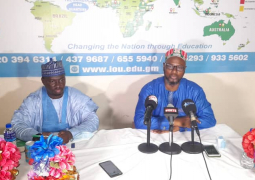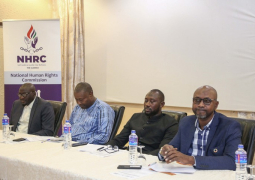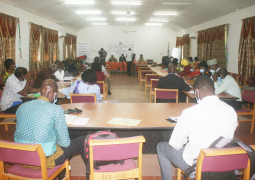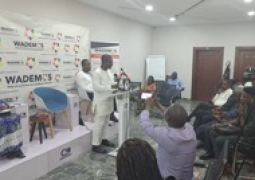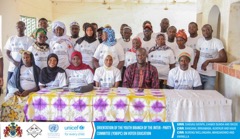
Supported by UNICEF Gambia under the joint UN Women Leadership Project, called Strengthening women’s political participation and leadership through reformed legislation, community-level leadership, and political parties’ engagement in The Gambia, the activity involves voter education campaign sessions to support the Youth Branch of the Inter-Party Committee (YOBIPC) in changing mind sets and amplify support for women political candidates/leaders especially young women and men.
Ansumana Ceesay, NCCE Senior Programme Officer disclosed that a total of ten (10) sessions will be conducted in Lower River Region, Central River Region and Upper River Region.
The orientation targets about 500 participants mainly youth representatives of political parties in the districts, youth and women leaders as well as Civil Society Organisations under the theme: “Empowerment beyond Pronouncement: Women in Politics and leadership.”
"This is the latest in our series of activities to support youth with the requisite knowledge and skills to advocate support for women’s political empowerment and meaningful participation in politics, electoral and decision-making processes," he added.
Mr Ceesay said that having women and youth in political leadership is very much in line with the constitution which guarantees basic human rights for women and men including young people to enjoy full legal equality of opportunities.
He also noted that providing space for women to safely express their views and opinions is imperative when embarking on journeys towards social and environmental justice and peace. “We urgently need a forum in which women can engage with each other, and those in power, in structured discussions to establish long-term and meaningful solutions to their perennial underrepresentation in politics and decision-making position,” he stated.
Mariama Drammeh, Lady Councillor for Sandu district pointed out that although women are actively participating in politics, their participation does not translate to their equal representation in political offices as men. “This is because they are most active in organising, mobilising and campaigning for men contesting for political offices, instead of running for political offices. She observed that “without the active participation of women and the incorporation of women’s perspective at all levels of decision-making, the goals of equality, sustainable development and peace cannot be achieved.”
Ebrima Janko, an executive member of YOBIPC Branch of URR commended NCCE and partners for organising the orientation session for young people in various regions. He added that young people of The Gambia should ensure to promote, encourage and support women’s participation across the country in the forthcoming Local Government Elections and as well as in the next electoral cycle (2026 to 2028).


